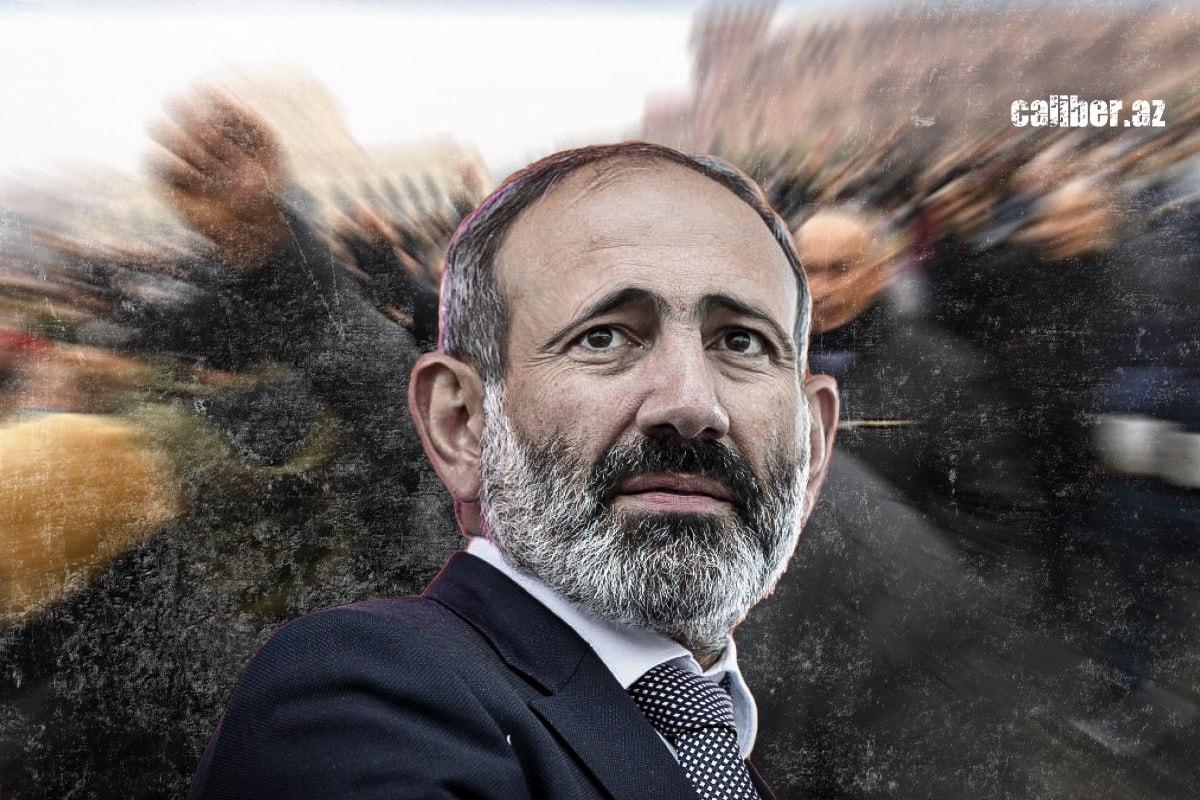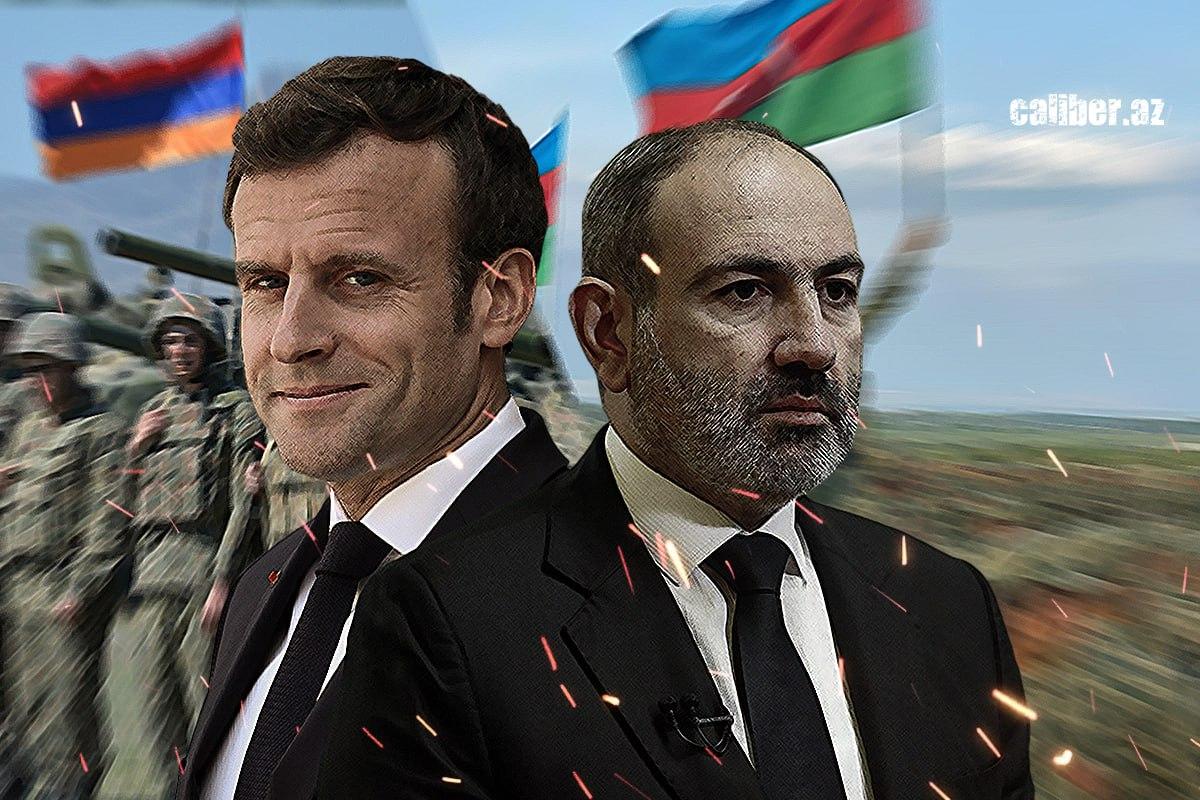"Pride" and armament Can Yerevan be trusted?
It seems that the time has come for taking stock of the Armenian-Azerbaijani settlement. This moment has been notably marked by the recent statement from Armenian Prime Minister Pashinyan that the protest movement has failed. He made this statement at a meeting of the "Civil Contract" party.
"The latest protest movement in Armenia has failed because the real Armenia, as an ideology, is being established in the Republic of Armenia today, these days, and in the preceding period, and it is perceived by the people," Pashinyan said, emphasizing that this belief arises from direct contact with people, emails addressed to him, and some social media research.
So, if Pashinyan no longer needs to be heavily distracted by the opposition, then we should once again witness initiatives or at least rhetoric aimed at long-term peace with Azerbaijan. Such rhetoric inevitably must be associated with the need to amend the constitution, which contains territorial claims against Azerbaijan.
At first glance, Pashinyan’s recent speech contains a cautious return to the meanings that he was going to instil in society starting in February of this year, namely the thesis of a “real Armenia” that should confront “historical Armenia.”
Let us remember that he tied this to the need to adopt a new constitution.
Now Pashinyan says the following: “The message of the people to their elites and to us, as the ruling majority, is the following: can you create conditions for us to live, just live?” Pashinyan said, adding that the people of Armenia do not want to go along the path to Golgotha, but simply want to live, give birth to children and create a prosperous life for them, especially since the most important tool for them is the state.

For us, the question now is whether these words signify a sincere desire to change the familiar paradigm of Armenian society's existence or, as has often been the case before, merely a rhetorical flourish?
Perhaps, Pashinyan's recent statements should not mislead us. After all, concurrently, Yerevan is deepening relations with France - a country that does not benefit from peace in the South Caucasus. A week ago, Armenian Defense Minister Papikyan visited Paris, and now French Minister of Armed Forces Sébastien Lecornu has announced on social media X that a contract has been signed between Yerevan and Paris for the supply of self-propelled artillery systems (SPGs) CAESAR. According to information from open sources, Armenia will acquire 36 SPGs, with an estimated contract value of around 180 million euros. France will also supply Armenia with 50 units of VAB MK3 armoured personnel carriers. Expected purchases include BASTION and SHERPA armoured vehicles produced by the French company ARQUUS.
In December of last year, it was officially announced that the first 24 BASTION armoured vehicles had been delivered to Armenia. At the end of October last year, the heads of the defence ministries of Armenia and France, Suren Papikyan and Sébastien Lecornu, during a meeting in Paris, outlined new opportunities for cooperation and agreed on the sale of three GM200 radars produced by THALES to Yerevan. They also signed a memorandum of understanding for the future supply of French short-range air defence systems MISTRAL. Armenia has also entered into multimillion-dollar contracts for the supply of various weapons from India. Among them is a contract with New Delhi worth approximately $245 million, which includes the purchase of PINAKA multiple rocket launchers, anti-tank missile systems, and ammunition.
According to available information, in August 2023, Armenia received the first batch of Indian towed artillery gun systems (ATAGS). The contract provides for the supply of an additional 84 of these guns totalling $155.5 million. Additionally, Armenia has shown interest in acquiring Indian Akash air defence systems, which could cost up to $720 million. It has also been reported that Armenia plans to purchase Indian TAPAS-BH-201 (Rustom-II) strike drones and anti-drone systems.
There is reason to suspect that these procurements are nothing but an attempt to alter the balance of power in the region. However, Armenia might argue that it is purchasing French and Indian weapons for the defence of the "real Armenia." Yet, there is a catch here too. We will never believe Armenia's intention to return to reality until it cleanses its fundamental law of the stench of territorial claims against Azerbaijan. Otherwise, talk of the "real Armenia" can be interpreted ambiguously. For instance, it could simultaneously signify a renunciation of territorial claims against neighbours and an acknowledgement that a respite is needed to pursue these claims.

If the first scenario holds true, then we may soon witness discussions about constitutional reforms. However, the absence of such reforms alongside the simultaneous procurement of weaponry leads us towards the second scenario: Armenia may perceive its current reality as a period of accumulating strength and waiting for an opportune moment to engage in new acts of aggression against Azerbaijan.
It's not excluded that these centrifugal tendencies towards Russia are connected to these goals. Events in recent years, largely due to Baku's efforts, have demonstrated that Moscow has shown no interest in maintaining the status quo at any cost related to the occupation of Karabakh. Now, Yerevan seeks new patrons to ensure support during potential future aggression. France stands at the forefront of this lineup. Moreover, in some sense, it occasionally acts as the initiator of such policies for Yerevan, possibly contrary to the wishes of Pashinyan and his team.
The West, as before, seeks to maintain its levers of conflict management in the South Caucasus. To achieve this, it will continue arming Armenia. Following this logic of conflict management, Western countries have no need for a change in Armenia's Constitution.
Thus, the peace process is once again shrouded in ominous uncertainty. It exists in theory—no one has revoked demarcation—but there are no prospects for long-term peace. Once again, the reluctance or inability of official Yerevan to resist foreign pressures and to refrain from attempting to reassess its position in the region and in the world serves as a hindrance on this path.








